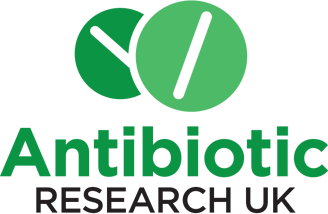If unchecked, Antimicrobial Resistance (AMR) will “have the same impact on people’s lives and the economy that COVID-19 is having,” according to former Chief Medical Officer, Dame Sally Davies. Sally offered her expertise for a new report by the independent think tank, Reform.
Whilst the true impact of COVID-19 is not yet fully understood, the pandemic is likely speeding up the risk of AMR.
92 per cent of COVID-19 patients admitted to intensive care units around the world received some form of antibiotic treatment. Antibiotics are commonly used to treat secondary illnesses, such as pneumonia.
The World Health Organisation cites antimicrobial resistance as one of the biggest threats to global health.
Already, a third of urinary tract infections in England display resistance to drugs. 60,000 ‘superbugs’ – resistant to antibiotics – emerged last year.
While praising the UK Government’s efforts to stimulate the development of new antibiotics, Reform is calling for a wider approach. They want to capitalise on the ground gained in testing, vaccine research and infection prevention, during the fight against COVID-19.
Tests and diagnostics
Diagnostics were identified as an area of untapped potential by the think tank. Reform are calling on Ministers to explore a ‘test, test, test’ approach to tackling AMR, as has been deployed against coronavirus.
The UK has raced to expand its local diagnostics capacity in response to COVID-19. They are spending £1.3 million on evaluating new tests in health care settings, alongside new ‘Lighthouse Labs’ to increase capacity.
Better use of on the spot tests, which allow clinicians to distinguish between bacterial and viral infections, would help to tackle unnecessary prescribing of antibiotics. Often they are used as a default option by doctors unaware of the specifics of their patient’s condition.
Reform is calling on NHS England to immediately commission a national assessment of point-of-care-diagnostics to maintain the ‘test, test, test’ momentum.
Research and vaccines
A renewed focus on vaccination, to prevent future illness and reduce demand for antibiotics, is also suggested by the think tank.
£131 million has been spent on state-of-the-art vaccine manufacturing facilities during the pandemic, alongside a new NHS COVID-19 Vaccine Research Registry to fast track sign-ups for clinical trials.
These initiatives should be used to stimulate further investment into vaccine R&D.
Hygiene in care
The focus on hygiene procedures, sanitation, and monitoring of infections within care settings, is another key lesson. If continued, these practices could help tackle antimicrobial resistance.
Prior to the pandemic, the Infection Prevention and Control (IPC) workforce required “urgent attention”. Reduced investment and workforce shortages, particularly in community and primary care settings need to be resolved.
Reform is calling for ongoing investment to train and upskill healthcare staff in IPC, beyond the pandemic.
Moving forward
Eleonora Harwich, Director of Research, Reform, said: “Although the pandemic has caused an unprecedented level of hardship, there are invaluable lessons from the battle against COVID-19 which will help us win the war on AMR.
“It’s vital that the Government maintains the momentum gained across diagnostics, vaccine development and infection reduction practices. It must also help to stimulate the development of new antibiotics. The pandemic must also provide impetus for the world to step up its response to this looming threat.”
Dame Sally Davies, UK Special Envoy on Antimicrobial Resistance, said: “While the world’s attention is rightly focused on the COVID-19 pandemic, we cannot afford to ignore the relentless, silent global health pandemic that is AMR.
“The clock is ticking, and we must up our pace if we want to preserve lifesaving antibiotics for future generations. The UK has made incredible progress in the last few years, but like with COVID-19, AMR is not a single-nation issue and can only be tackled through international collaboration and with the support of industry.
“The UK is already at the forefront. Now, we will continue to lead AMR efforts with global partners to save modern medicine. We must replenish the pipeline of new antibiotics, but also surveillance, research and awareness. This ensures we have a toolkit of effective, appropriate and accessible diagnostics, vaccines, and alternative therapies. The time to act is now.”
Greg Quinn, Director of Public Policy at BD said: “Here at BD, we fully agree with and support Reform’s fight against AMR.
“The private sector has a crucial role to play with government partners in building on this momentum. They must continue to invest in the development of high quality diagnostic systems that screen, test and diagnose infection. This is then supported by surveillance and reporting capabilities to monitor, track and predict AMR outbreaks.
“A ‘test, test, test approach’ became the backbone of COVID-19. We fully support the call for government to tackle AMR in the same way, before it’s too late.”
Patient support
Arlene Brailey, Patient Support, Antibiotic Research UK, (pictured) said: “Although public awareness of antibiotic resistance has increased, many people are still suffering in silence. They’re unaware that they even have a drug-resistant infection. Our Patient Support service offers them encouragement and information. We provide patients and their families with the opportunity to share experiences.
“Although the fight against COVID-19 is not yet over, Ministers must recognise the seriousness of this issue. We endorse Reform’s proposals for further investment in awareness and education campaigns, which highlight the lived experiences of those whose lives have been blighted by infection resistant to most antibiotics. Only then will we see the critical mass of public support required to put drug-resistance into reverse.”


